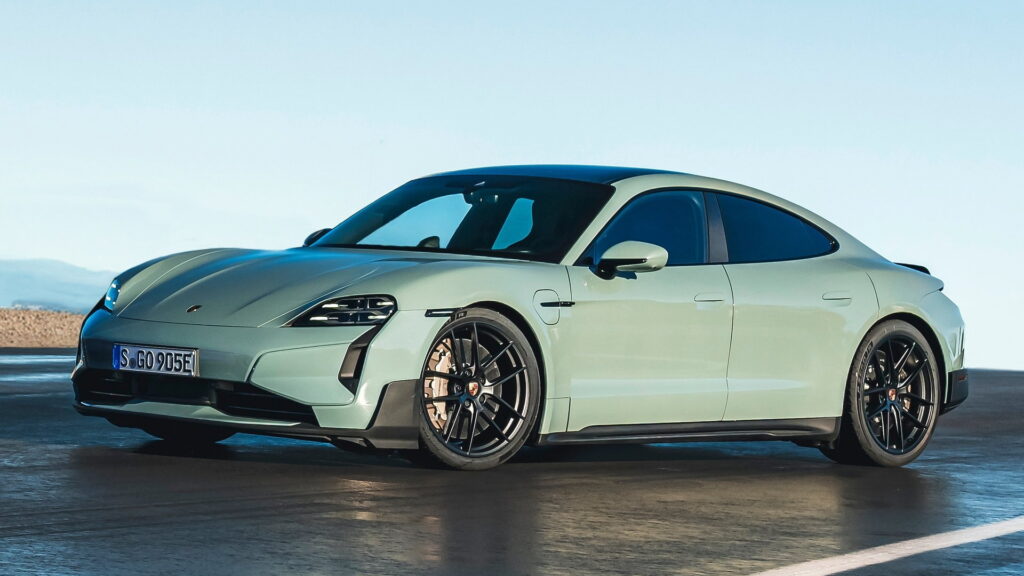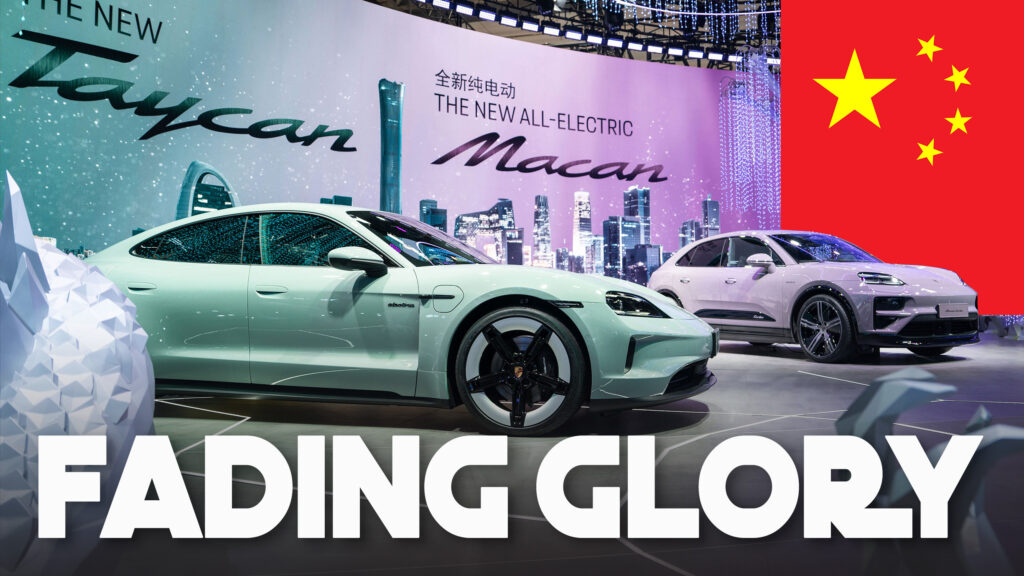
- Chinese drivers are turning their back on Porsche in favor of domestic products like Xiaomi’s SU7.
- They think Porsche’s cars are too expensive and are missing desirable tech gadgets and features.
- Porsche sales tanked 28 percent in China in 2024 and Taycan deliveries almost halved in the year.
Chinese smartphone giant turned automaker Xiaomi proudly announced last week that its SU7 Ultra sedan has lapped the Shanghai International Circuit almost 1.5 seconds faster than the previous record holder, the Porsche Taycan Turbo GT. But Porsche’s China crisis goes far beyond ranking second on a racetrack leader board.
var adpushup = window.adpushup = window.adpushup || {que:[]};
adpushup.que.push(function() {
if (adpushup.config.platform !== “DESKTOP”){
adpushup.triggerAd(“0f7e3106-c4d6-4db4-8135-c508879a76f8”);
} else {
adpushup.triggerAd(“82503191-e1d1-435a-874f-9c78a2a54a2f”);
}
});
More: Xiaomi SU7 Ultra Smashes Taycan Turbo GT’s Lap Record At Shanghai Circuit
For years, Western automakers have relied on China to provide growth and a massive chunk of their revenue. But now local car buyers are increasingly rejecting long-established European brands in favor of domestically-produced, Chinese-branded cars. Porsche is far from the only Western car company taking a hit, but it’s taken a really big one.
Porsche’s China Sales Are in Freefall
Porsche sales in China dropped by a staggering 28 percent during 2024, and deliveries of the once hugely popular Taycan EV dropped by almost half, the automaker revealed last month. True, 2024 was a changeover year for several models, including the Taycan, Panamera (also down) and 911, but the slump has less to do with that and more to do with changing attitudes in China to its own increasingly competent car brands.
In the SU7, for instance, Xiaomi has built an electric sedan that looks almost as good as a Taycan, makes more power and cost a fraction as much. The top-spec Ultra that broke the Shanghai record is priced at the equivalent of $112,000 to the Turbo GT’s $230,000 and makes 1,527 hp (1,139 kW / 1,548 PS) versus 1,092 hp (815 kW / 1,108 PS) for the German car in Launch Control mode.
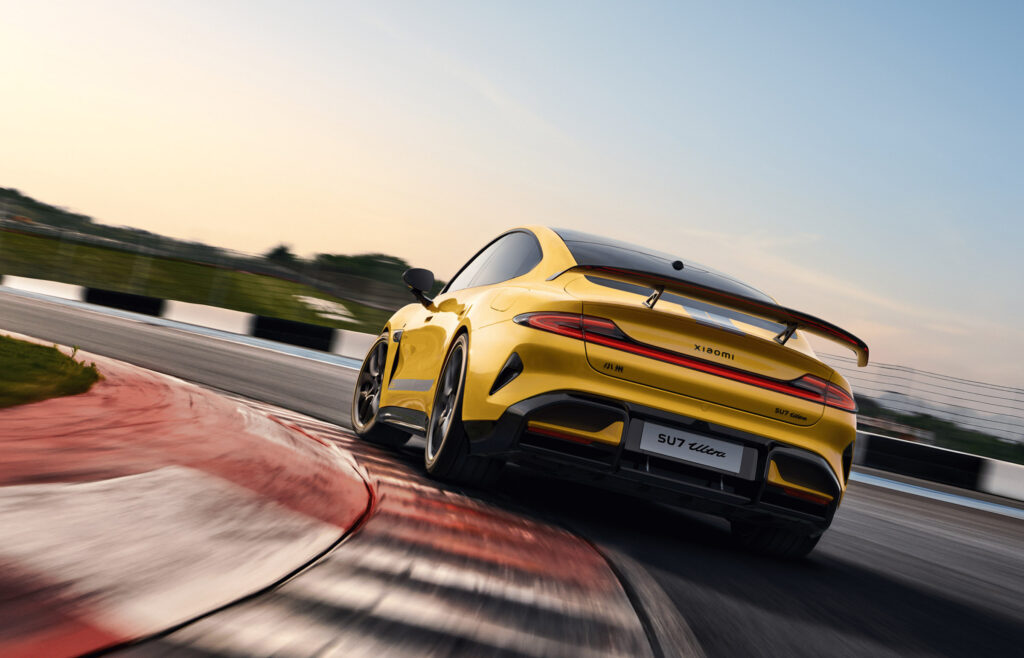
Other SU7 models offer a similarly appealing bang-to-yen ratio. No wonder Xiaomi sold over 100,000 of them last year and Porsche only shifted 21,000 Taycans.
“I think Chinese consumers right now are ready to accept that Chinese companies can produce cars that are considered as premium to them,” Gary Ng, an economist with Natixis Corporate & Investment Banking, told the New York Times.
var adpushup = window.adpushup = window.adpushup || {que:[]};
adpushup.que.push(function() {
if (adpushup.config.platform !== “DESKTOP”){
adpushup.triggerAd(“bb7964e9-07de-4b06-a83e-ead35079d53c”);
} else {
adpushup.triggerAd(“9b1169d9-7a89-4971-a77f-1397f7588751”);
}
});
But here’s the wild bit: the SU7 is currently only sold in China and that 21,000-unit Taycan sales figure is a global number. Just imagine how much more damage the SU7 could do if it was available elsewhere.
In other markets, of course, Porsche can currently rely on the strength of the brand, one cultivated through decades of racing history and pop culture appearances. That’s less of a draw in China, where Porsche hasn’t been around for 70+ years. Moreover, buyers’ heroes are tech brands, and they want tech features Porsche and Western brands can’t deliver, but Chinese ones can.
Porsche Is Playing Tech Catch-Up
You still can’t buy a Porsche with a Level 3, or fully hands-off Level 2 driver-assist system (though the latter, co-developed with Mobileye, is coming this year), while the Lidar-equipped SU7 comes with a 56-inch head-up display and Xiaomi’s smartphone and AI know-how means drivers get into the car and can transfer their phone interface to the SU7’s media screen with the press of a single button. German, American and even Japanese and Korean brands have all underestimated the importance of software-defined vehicles, one industry expert told the NYT.
var adpushup = window.adpushup = window.adpushup || {que:[]};
adpushup.que.push(function() {
if (adpushup.config.platform !== “DESKTOP”){
adpushup.triggerAd(“b25ecba7-3bbb-4ea7-a3a8-dbea91695c07”);
} else {
adpushup.triggerAd(“e46c436a-adeb-4b5e-a2c7-56bc36561c10”);
}
});
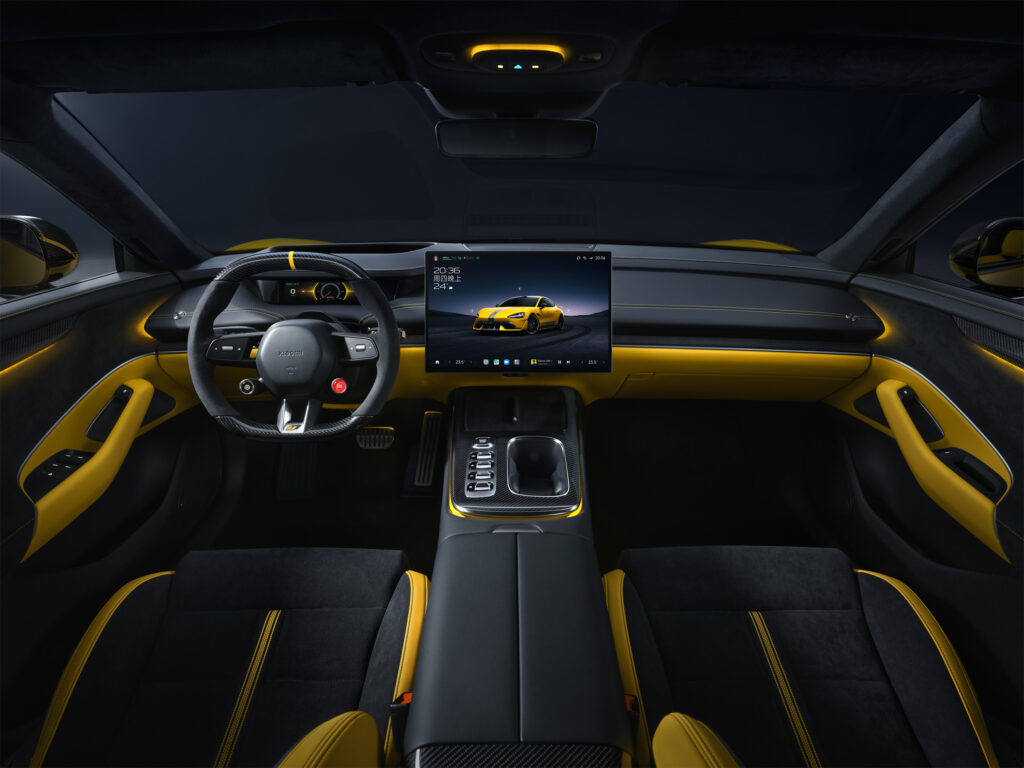
In some cases, there are reasons for their reticence. Brands like Porsche and Ferrari have been careful not to jump to provide ADAS systems earlier than other brands because they’re keen to preserve their hard-earned reputations as makers of pure drivers’ cars. You’d never see either brand showing off how its EV could race around a track without a driver, as BYD did with its Yangwang U9 supercar last week.
More: EVs Set To Outsell Gas Cars In China In 2025, 10 Years Ahead Of Schedule
But Chinese buyers are pragmatic and less obsessed with the classic idea of driving fun. Quit the hand-wringing and just give us the tech, they’re effectively saying by ignoring the Taycan and buying cars with more advanced systems, like the SU7. The fact that buyers are so young – averaging 33 years old in 2021 for the Taycan – suggests they’re potentially more open to switching brands.
Could It Happen In The West?
And how long until even European and American drivers, if given the choice between a Porsche and a Chinese product that does much of the same thing for half the price, start to ignore Porsche cars, too? I love cars like the Macan and Taycan, but let’s not pretend it can’t happen, at least to the four-seat models.
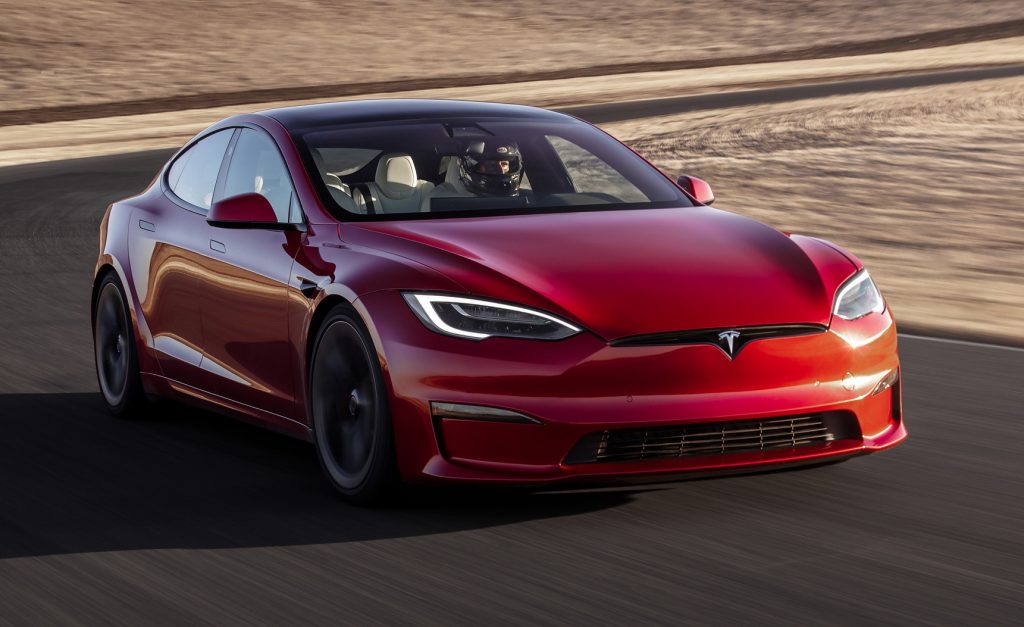
We welcomed newcomers like Tesla and Rivian, seeing them as legitimate rivals to Porsche, so why not Xiaomi? Ford boss Jim Farley has already said he loves driving his SU7 so much he doesn’t want to give it back. US tariffs and some lingering anti-Chinese sentiment provide a hill to climb, but the Chinese will crest it. Look how far Kia has come in 35 years, and then look at how far Xiaomi has come in just a couple with one car.
What would you do to get Porsche back on track in China? And do you believe it’ll eventually have the same problem in Europe and America, or does it have the brand power to stay ahead? Leave a comment below and let us know what you think.
